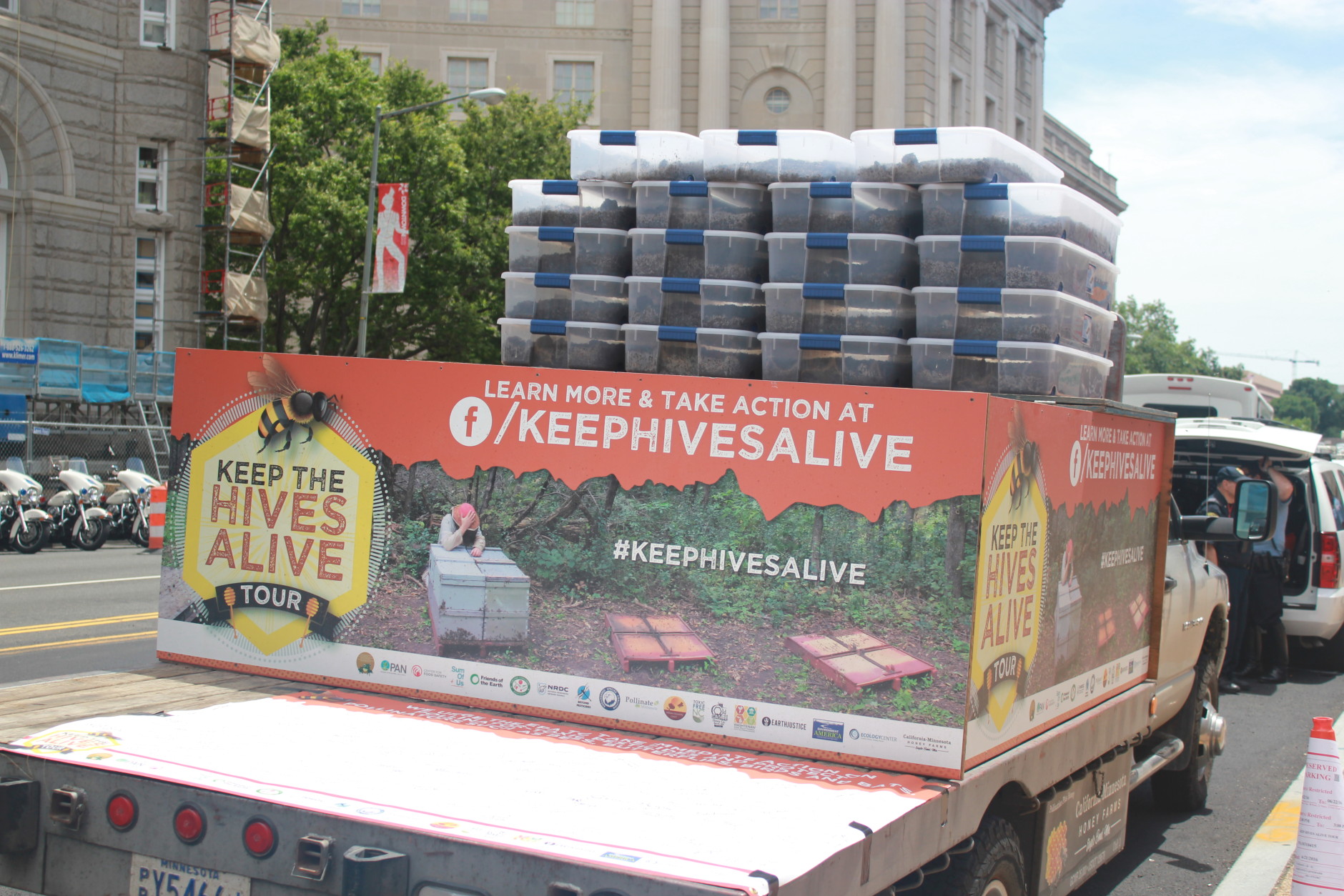

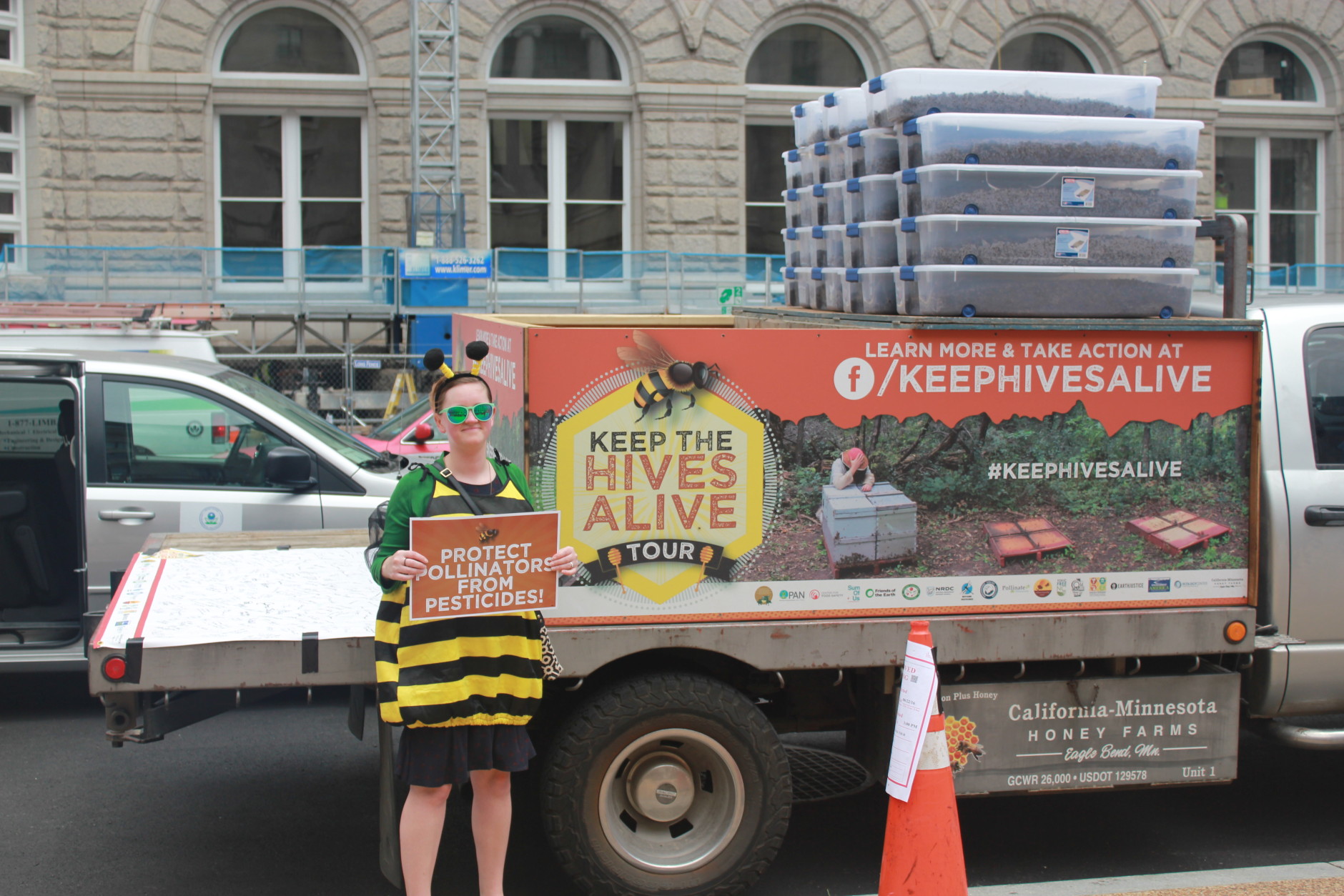
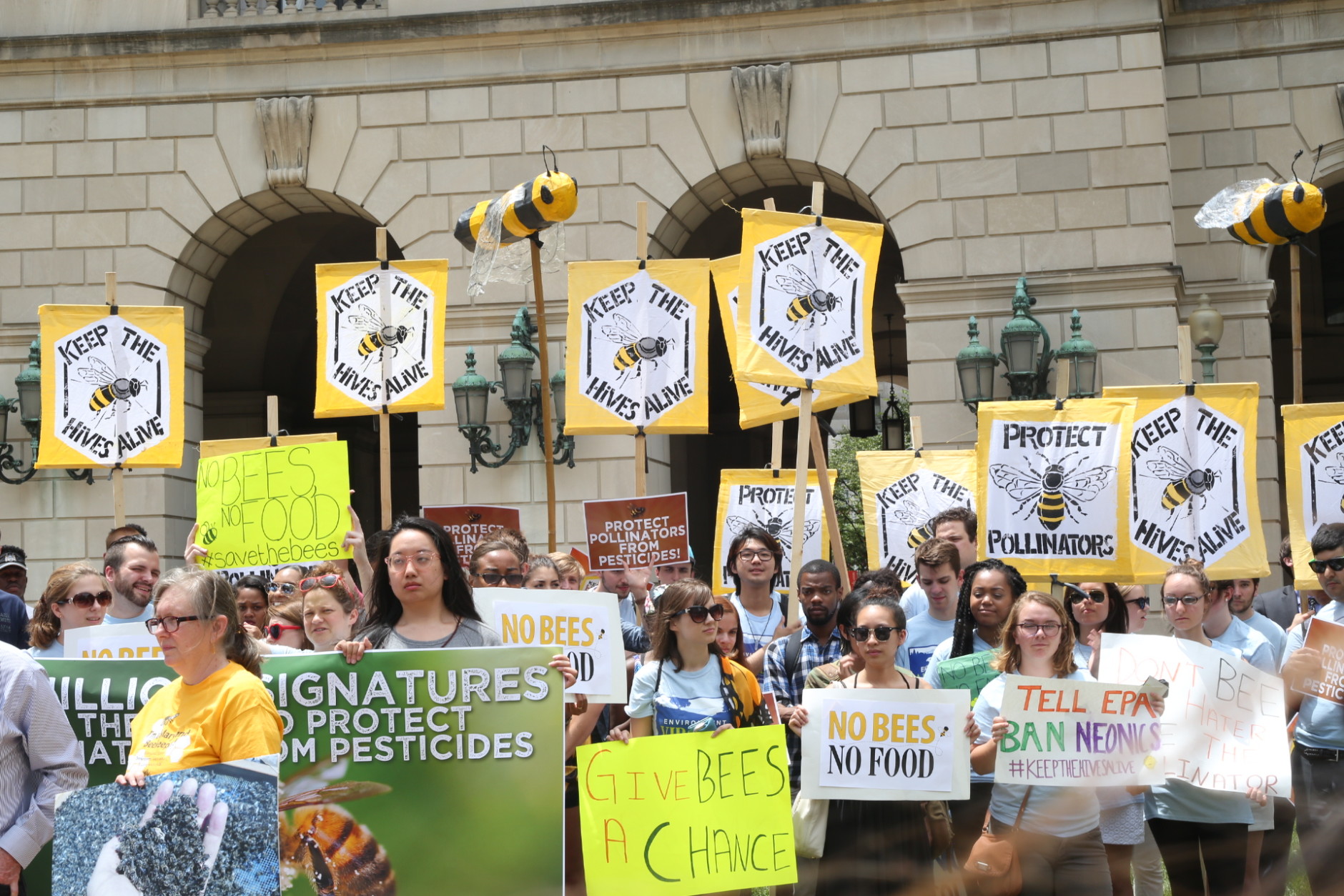
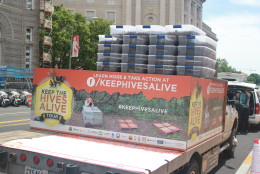

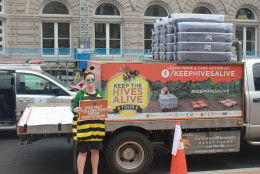
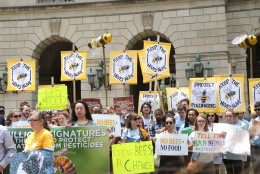
WASHINGTON — On a cross-country road trip, one Minnesota-based beekeeper packed the back of his truck with more than 2.5 million dead bees.
“Right now colonies are still collapsing at an alarming rate,” said James Cook, the beekeeper who has driven from South Dakota to D.C. in order to raise awareness for mass bee colony deaths across the country.
In 2011, as many as 12 million bees died in Brevard County, Florida. Last year, Maryland saw a loss of more than 60 percent of its hives. The mass loss of bees even prompted President Barack Obama to create a Pollinator Health Task Force in 2014.
The “Keep the Hives Alive” tour, largely organized by grass roots network Friends of the Earth, lasted from June 13-23 and ended with a rally in front of the Environmental Protection Agency building in D.C. last week.
Cook told WTOP in a phone interview that he wanted to use the dead bees as a way to drive the point home. The bees on his truck represented about 75 hives worth, but on a national scale, there have been up to 840,000 hives lost reported last year, according to Cook.
Causes of death include pests and pathogens, but Cook’s main concern is bee-fatal pesticides.
“The reason people should care about pollinators is that there are quite a few foods that we enjoy eating that would not be in existence without their help,” Cook said. “So it’s definitely something that’s important for everybody to keep on their conscience.”





